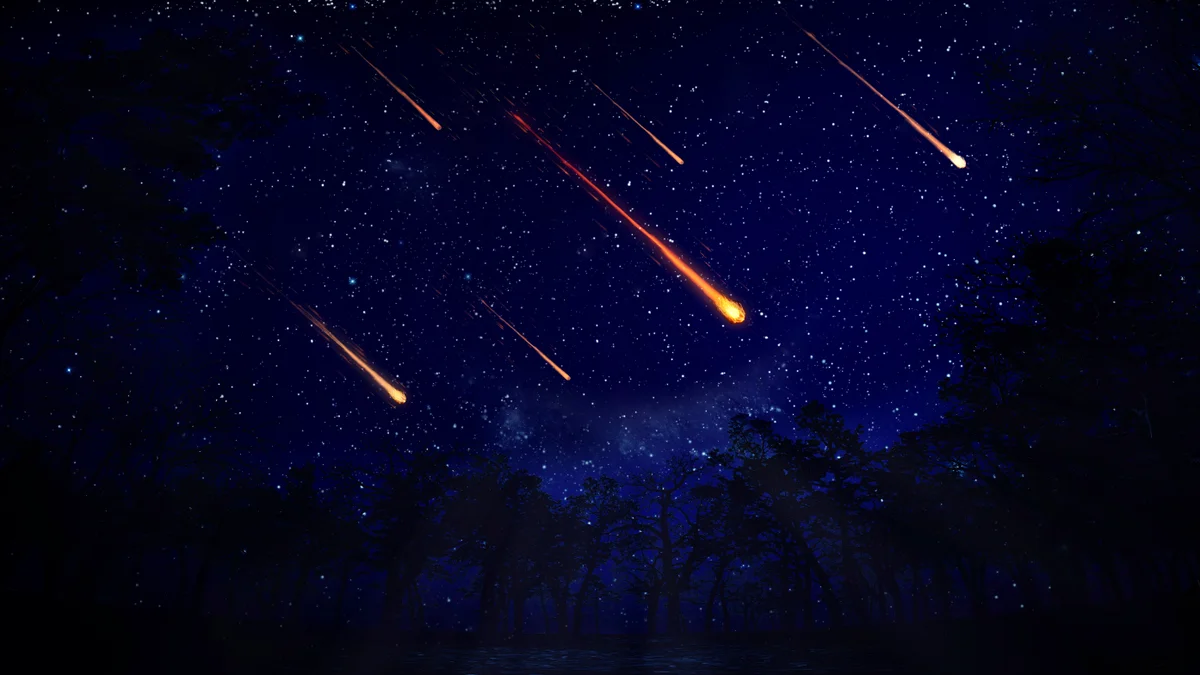Meteors, often referred to as “shooting stars,” are brief streaks of light caused by small objects entering Earth’s atmosphere. These objects, called meteoroids, are typically fragments of asteroids, comets, or other celestial bodies.
Formation of Meteors
When a meteoroid enters Earth’s atmosphere, it heats up due to friction with the air. This heat causes the meteoroid to glow, creating a visible streak of light across the sky. The intense heat often vaporizes the meteoroid before it reaches the ground.
Types of Meteors
There are several types of meteors, including:
- Sporadic meteors: These are meteors that occur randomly throughout the year.
- Meteor showers: These are events where a large number of meteors appear to originate from a single point in the sky. Meteor showers are caused by the Earth passing through a stream of debris left behind by a comet.
- Fireballs: These are exceptionally bright meteors that can be seen during daylight hours. Fireballs are often caused by larger meteoroids.
The Threat of Meteor Impacts
While most meteors burn up harmlessly in the atmosphere, some can be large enough to reach the ground. These objects are called meteorites. Meteorites can cause damage to property and even injure or kill people.
Observing Meteors
Watching meteor showers is a popular activity for many people. To observe a meteor shower, it is best to find a dark location away from city lights. You should also lie down on your back and look up at the sky. Meteors can appear anywhere in the sky, so it is important to scan the entire sky.
Conclusion
Meteors are a fascinating natural phenomenon that can be enjoyed by people of all ages. While most meteors are harmless, it is important to be aware of the potential risks associated with large meteor impacts. By studying meteors, we can learn more about the formation of our solar system and the objects that orbit our planet.
